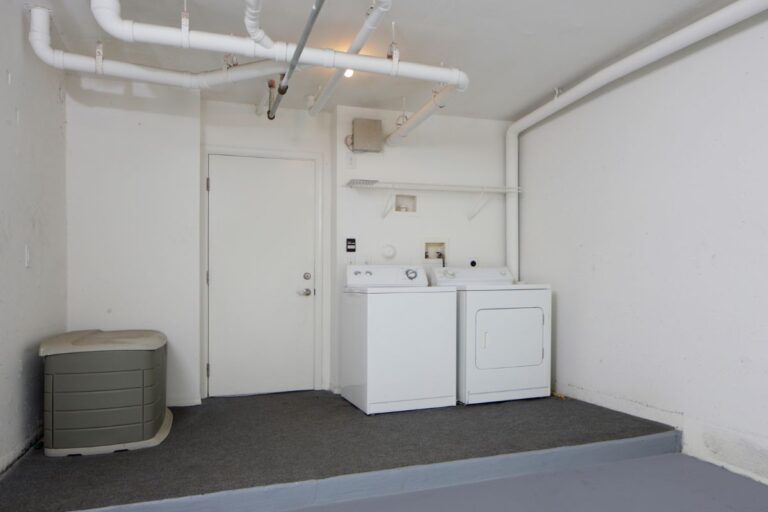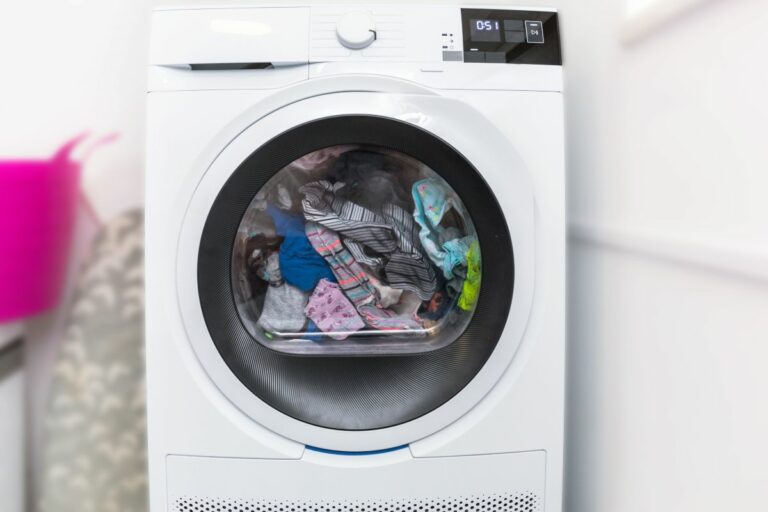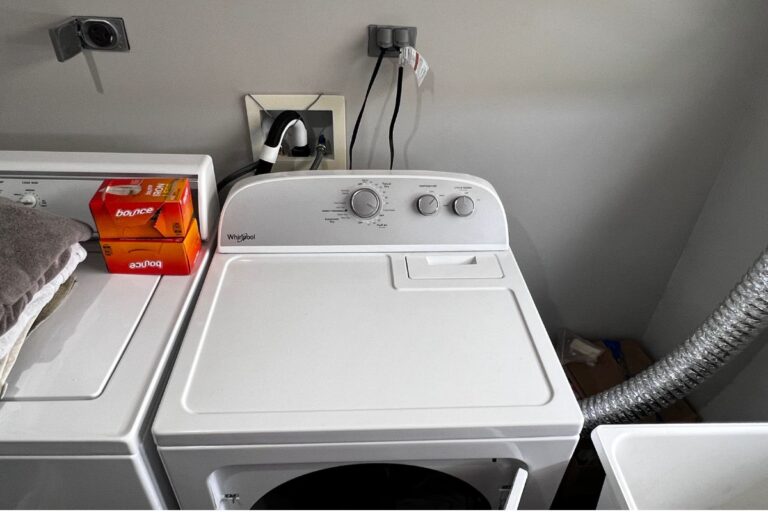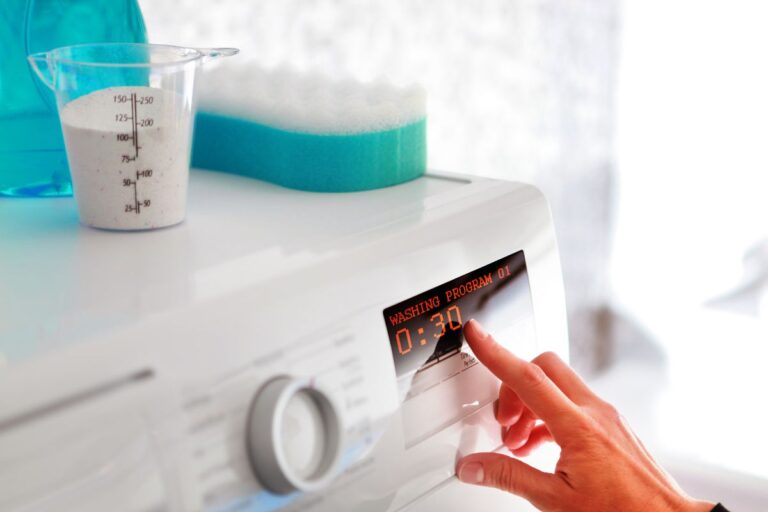Do I Need to Connect Hot Water to a Washing Machine? Benefits Explained
Are you tired of wasting energy and money by connecting hot water to your washing machine?
The hot water connection to a washing machine is not needed. However, hot water has essential functions such as disinfecting, efficient cleaning, and properly dissolving detergents. Cold water can be plumbed to both hot and cold water inlets using a “Y” connector, but it is not recommended because hot water has specific functions during the washing cycle.
In this article, we’ll explain whether or not it is necessary to connect hot water to a washer and the benefits that come with it even though it uses energy to heat the water in the first place.
Do I Need to Connect Hot Water to a Washing Machine
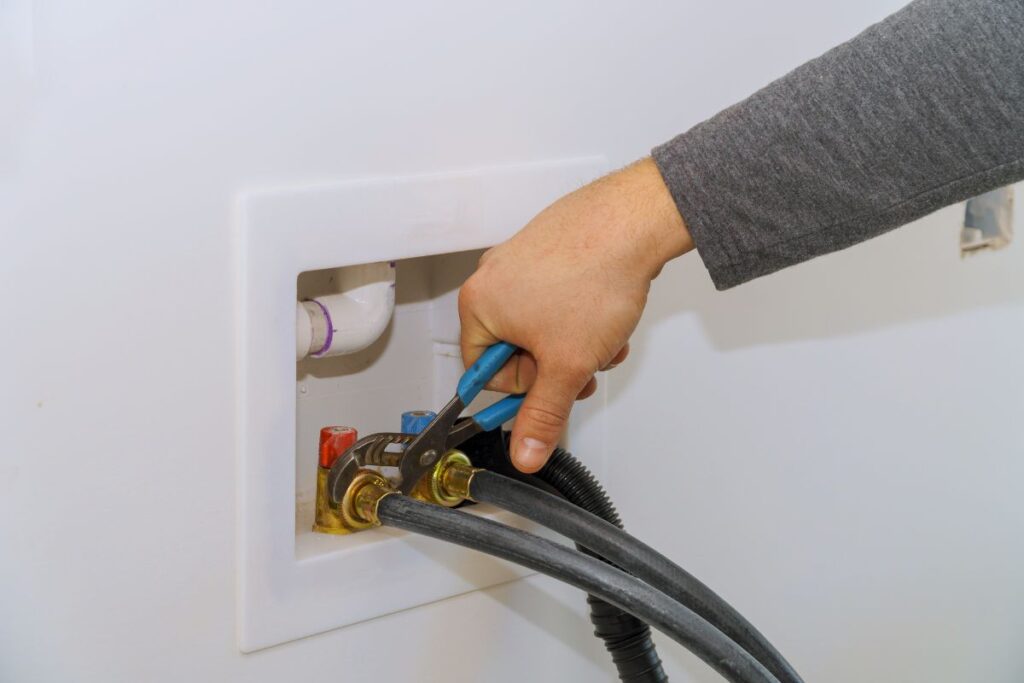
If you’re wondering whether you can wash your clothes in only cold water, the answer is yes.
Modern washing machines and cleaning appliances such as washers are designed to work effectively with cold water, and detergents are specifically formulated for cold water washes.
Washing clothes in cold water can save money on energy bills, reduce your carbon footprint, preserve fabric colors, and prevent shrinkage. However, adding hot water to the wash cycle will produce clothes with a cleaner appearance.
Can you wash in Only Cold Water?
You can wash your clothes in only cold water without the need to connect hot water to the washing machine.
Here are four important points to consider:
| Benefit | Explanation |
|---|---|
| Cold water detergents | Specifically formulated for cold water washes, these detergents dissolve and activate enzymes in cold water, ensuring effective cleaning. |
| Fabric preservation | Cold water washing helps preserve colors and prevent shrinkage of clothes. It is suitable for most types of clothing and is gentle on fabrics, preventing fading. |
| Energy and cost savings | Washing clothes in cold water can save up to 90% of the energy used for heating water. This results in significant cost savings on energy bills and reduces carbon footprint. |
| Exceptions | While cold water washing is suitable for most clothes, heavily soiled or greasy items may benefit from warm water. Bedding and towels may require hot water for thorough cleaning. Additionally, sanitizing or disinfecting laundry may require hot water. Always check clothing labels for specific temperature recommendations. |
Does Hot Water Damage a Washing Machine

Connecting hot water to a washing machine doesn’t inherently damage the machine.
The hot water supply is connected to the washing machine through the hot water hose connected to the hot water inlet on the machine. The hot valve controls the flow of hot water into the machine during the wash cycle.
One of the main advantages of connecting hot water to a washing machine is that it can help to improve the cleaning performance. Hot water has the ability to break down and remove tough stains and dirt more effectively than cold water.
It can also help to kill bacteria and other microorganisms that may be present on the clothes. Additionally, some fabrics, such as bedding and towels, may require hot water for a thorough cleaning.
All fabrics can be washed in hot water. Delicate fabrics, like silk and wool, can be damaged by hot water and should be washed in cold water instead.
It’s always recommended to check the care instructions on the clothing tags for specific temperature recommendations.
Should I Connect My Washing Machine to Hot or Cold Water

To determine whether to connect your washing machine to hot or cold water, consider the fabric type and follow the recommended temperature guidelines from the previous discussion on the benefits and considerations of using cold water in washing machines.
Here are four factors to consider when deciding whether to connect your washing machine to hot or cold water:
- Fabric Compatibility:
Different fabrics require different water temperatures for optimal cleaning. Delicate fabrics like silk or wool may require cold water to prevent damage, while heavily soiled items may benefit from warm or hot water for thorough cleaning. - Energy Efficiency:
Connecting your washing machine to cold water can help save energy and lower your utility bills. Washing with cold water eliminates the need to heat water, reducing energy consumption and your carbon footprint. - Hot Water Inlet:
If your washing machine has a hot water inlet, you can connect it to a hot water supply for a hot fill. This is useful when you have specific laundry needs that require hot water, such as sanitizing or disinfecting laundry. - Cold Water Hose:
Alternatively, if you prefer to connect your washing machine to cold water, you can use a cold water hose. This allows you to wash clothes without using hot water and is suitable for most types of clothing.
Consider your fabric type, energy efficiency goals, and specific laundry needs when deciding whether to connect your washing machine to hot or cold water.
Ensure proper installation and follow manufacturer guidelines for your washing machine’s best performance and longevity.
Will a Machine function if There is No Hot Water
If there’s no hot water available, the washing machine can still function properly using the cold water cycle.
A washing machine doesn’t require a direct connection to hot water, as it doesn’t have the capability to heat the water itself. Instead, it relies on the water supply, whether hot or cold, to perform its functions.
To use the washing machine without hot water, you can simply connect the cold water supply to the machine using a Y hose connector. This will allow the machine to draw water from the cold water tap and use it for the wash cycle.
Using cold water in the washing machine has its benefits. It saves money on energy bills and reduces your carbon footprint. Additionally, cold water is effective in removing most stains and dirt, and it’s suitable for most types of clothing.
When do You Need Hot Water for Washing

You need hot water for washing when you want to effectively sanitize or disinfect your laundry. Here are four situations where hot water is necessary for a thorough wash:
Stains and Odors:
Hot water helps break down tough stains and eliminates stubborn odors from your clothes. It can effectively remove grease, oil, and protein-based stains, ensuring your garments come out clean and fresh.
Allergens and Germs:
Hot water is essential for killing allergens and germs that may be present in your laundry. It destroys bacteria, dust mites, and other microorganisms that can cause allergies or illness. This is especially important for items like bedding, towels, and heavily soiled clothes.
Whites and Brightness:
Hot water can help maintain the brightness of white fabrics. It helps remove yellowing or dinginess caused by sweat, body oils, or other contaminants. Washing whites in hot water can restore their original brightness and keep them looking crisp.
Sanitizing and Disinfecting:
Hot water is effective in sanitizing and disinfecting your laundry, especially during times when hygiene is crucial. It can kill germs that may be present on items like kitchen towels, baby clothes, or undergarments, ensuring they’re thoroughly clean and safe to use.
To meet these needs, it’s important to connect your washing machine to a hot water supply. By doing so, you can ensure that your laundry receives the necessary temperature to achieve optimal cleanliness and hygiene.
How to Bypass Hot Water to a Washing Machine
To bypass hot water to your washing machine, you’ll need to connect a Y hose connector on the cold water tap and attach both hoses using the connector. This innovative method allows you to wash your clothes without using hot water.
- Locate the cold water tap, usually found near the washing machine.
- Attach the Y hose connector to the tap, ensuring a secure connection.
- Take one end of the washing machine hose and connect it to one side of the Y connector.
- Take the other end of the hose and attach it to the remaining side of the Y connector.
- Make sure all connections are tight to prevent any leaks.
- Once the hoses are securely connected, turn on the cold water tap.
- Test the water flow to ensure it is functioning properly.
You should now be able to use your washing machine with cold water only, bypassing the need for hot water.
This method isn’t only convenient but also saves energy and reduces your carbon footprint. Remember to follow the manufacturer’s guidelines and ensure proper installation for optimal performance.
Can you Connect Cold Water to Both Hot and Cold Inlet
To connect cold water to both the hot and cold inlet of your washing machine, you can use a ‘Y’ connector on the water supply. This connector allows you to bypass the hot water and connect both hoses to the cold water tap.
Using a “Y” connector on water supply
Connecting cold water to both the hot and cold inlets of your washing machine can be achieved by using a ‘Y’ connector on the water supply. This allows you to bypass the hot water and wash your clothes using only cold water.
To do this, follow these steps:
- Locate the water hookup behind your washing machine.
- Turn off the water valve by twisting it clockwise.
- Disconnect the hot water hose from the water valve.
- Connect the ‘Y’ connector to the water valve.
- Attach the cold water hose to one end of the ‘Y’ connector.
- Connect the other end of the ‘Y’ connector to the water valve.
- Make sure all connections are tightened securely.
- Turn on the water valve by twisting it counterclockwise.
- Test the water flow by running a cold water cycle on your washing machine.
Do washing machines make their own hot water?
No, washing machines do not make their own hot water. Instead, they rely on a water heater to provide hot water for the wash cycle.
When you connect your washing machine using the appropriate hoses, one hose is connected to the cold water supply and the other to the hot water supply.
The hot water hose is then connected to a water heater, which heats the water before it enters the washing machine.
| Connection | Hose | Purpose |
|---|---|---|
| Cold Water | Blue Hose | Supplies cold water for wash |
| Hot Water | Red Hose | Supplies hot water for wash |
| Water Heater | Heats water for hot wash |
As you can see, the washing machine relies on the water heater to provide hot water for the wash cycle. Without a water heater, the hot water option on your washing machine may not work as intended. Therefore, it is important to ensure that your washing machine is properly connected to a water heater to ensure optimal performance.
The Takeaways
- Washing machines require a hot water tap supply, as they do not heat water.
- Cold water can be used for washing, but warm or hot water cycles may not work as intended.
- Connect a Y hose connector on the cold water tap to bypass the hot water.
- Modern detergents are formulated to work effectively in cold water.



